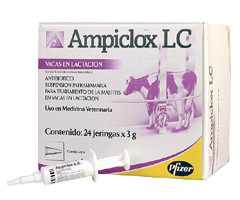Paracetamol
Paracetamol relieves pain and fever in adults and children, and it is the most widely accepted medicine for this purpose. It is used mainly for its pain relief properties either as a medicine prescribed by a doctor or it can be purchased as an over-the-counter medicine both in retail pharmacies or grocers shops.
There are virtually no groups of people who should not take paracetamol, and interactions with other treatments are not a problem.
When taken at the recommended dosage, there are virtually no side-effects.
Its pain relief (analgesic) and fever relief (antipyretic) effects are similar to those of aspirin and it works in a similar, though not identical, way. Unlike aspirin, however, increasing the dose does not result in clinically useful anti-inflammatory activity. Paracetamol is therefore not of value for reducing inflammation in the treatment of chronic rheumatic diseases as are the non-steroidal anti-inflammatory drugs like aspirin. Nevertheless, paracetamol does provide useful pain relief and is considered the first line treatment in osteoarthritis.
Paracetamol can be combined with decongestant ingredients to help relieve the symptoms of the common cold, influenza and sinusitis by relieving headache, general aches, nasal congestion and fever.
Paracetamol and its combinations are mainly available as tablets for immediate consumption or for dissolving in water before consumption. It is suitable for all age groups including the very young for whom it may be used following immunisation procedures, and it is available in liquid formulations for young children.
Mechanism of action :
Over 100 years after it was first discovered, we are now learning what the mechanism of action is that makes paracetamol such an effective and useful medicine. It now appears paracetamol has a highly targeted action in the brain, blocking an enzyme involved in the transmission of pain.
As with many medicines, the effectiveness of paracetamol was discovered without knowing how it works. Its mode of action was known to be different to other pain relievers, but although it produces pain relief throughout the body the exact mechanism was not clear.
The production of prostaglandins is part of the body's inflammatory response to injury, and inhibition of prostaglandin production around the body by blocking the cyclooxygenase enzymes known as COX-1 and COX-2 has long been known to be the mechanism of action of aspirin and other non-steroidal anti-inflammatory drugs (NSAIDs) such as ibuprofen. However, their action in blocking COX-1 is known to be responsible for also causing the unwanted gastrointestinal side effects associated with these drugs.
Paracetamol has no significant action on COX-1 and COX-2, which left its mode of action a mystery but did explain its lack of anti-inflammatory action and also, more importantly, its freedom from gastrointestinal side effects typical of NSAIDs.
Early work (1) had suggested that the fever reducing action of paracetamol was due to activity in the brain while its lack of any clinically useful anti-inflammatory action was consistent with a lack of prostaglandin inhibition peripherally in the body.
Now, recent research (2) has shown the presence of a new, previously unknown cyclooxygenase enzyme COX-3, found in the brain and spinal cord, which is selectively inhibited by paracetamol, and is distinct from the two already known cyclooxygenase enzymes COX-1 and COX-2. It is now believed that this selective inhibition of the enzyme COX-3 in the brain and spinal cord explains the effectiveness of paracetamol in relieving pain and reducing fever without having unwanted gastrointestinal side effects.







